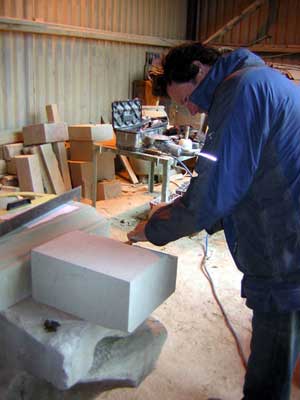Stonemason
Tasks & duties

Stonemasons may do some or all of the following:
-
discuss requirements with clients
-
design or examine plans based on the client's requirements
-
obtain material from quarries or stone mines
-
construct and use special tools for working with stone
-
work with various types of stone, including limestone, sandstone, schist, granite, slate and rubble
-
select, split, cut and shape stone to make structures
-
set stone in place using different techniques such as dry-stone walling, concreting or reinforcing
-
set stone panels to the exterior and interior of buildings
-
check the quality of the finished product
-
lay and polish stone floors
Skills & knowledge
Stonemasons need to have:
-
skill in working with all types of stone
-
stone cutting skills
-
knowledge of polishing techniques
-
design skills
-
problem-solving skills
-
maths skills
-
communication skills
-
knowledge of safe work practices
Entry requirements
There are no specific requirements to become a stonemason. Most people learn under the supervision of an established stonemason or undertake an apprenticeship.
For those doing a formal apprenticeship a completion certificate is issued by the Masonry Industry Training Organisation after completing 8,000 hours of work.
Secondary education
A minimum of three years of secondary school education is recommended.
Tertiary education
A qualification in stonemasonry is offered by Otago Polytechnic.
Training on the job
Skills are gained through on-the-job training. It is important for stonemasons to keep up to date with the latest materials, brands and additives being used in products.
Useful experience
Useful experience for stonemasons includes work in the building construction industry such as bricklaying, concreting, plastering or labouring.
Related courses
Bricklaying and Stonemasonry
For more information, please refer to Career Services.
Document Actions
